Understanding the Critical Role of Accurate Diagnosis
An accurate diagnosis is the foundation of effective patient care. It guides treatment decisions, enhances safety, and improves health outcomes. As medical science evolves, the importance of diagnostic accuracy becomes even more pronounced, influencing everything from individual treatment plans to large-scale public health strategies.
The Importance of Accurate and Timely Diagnosis in Healthcare
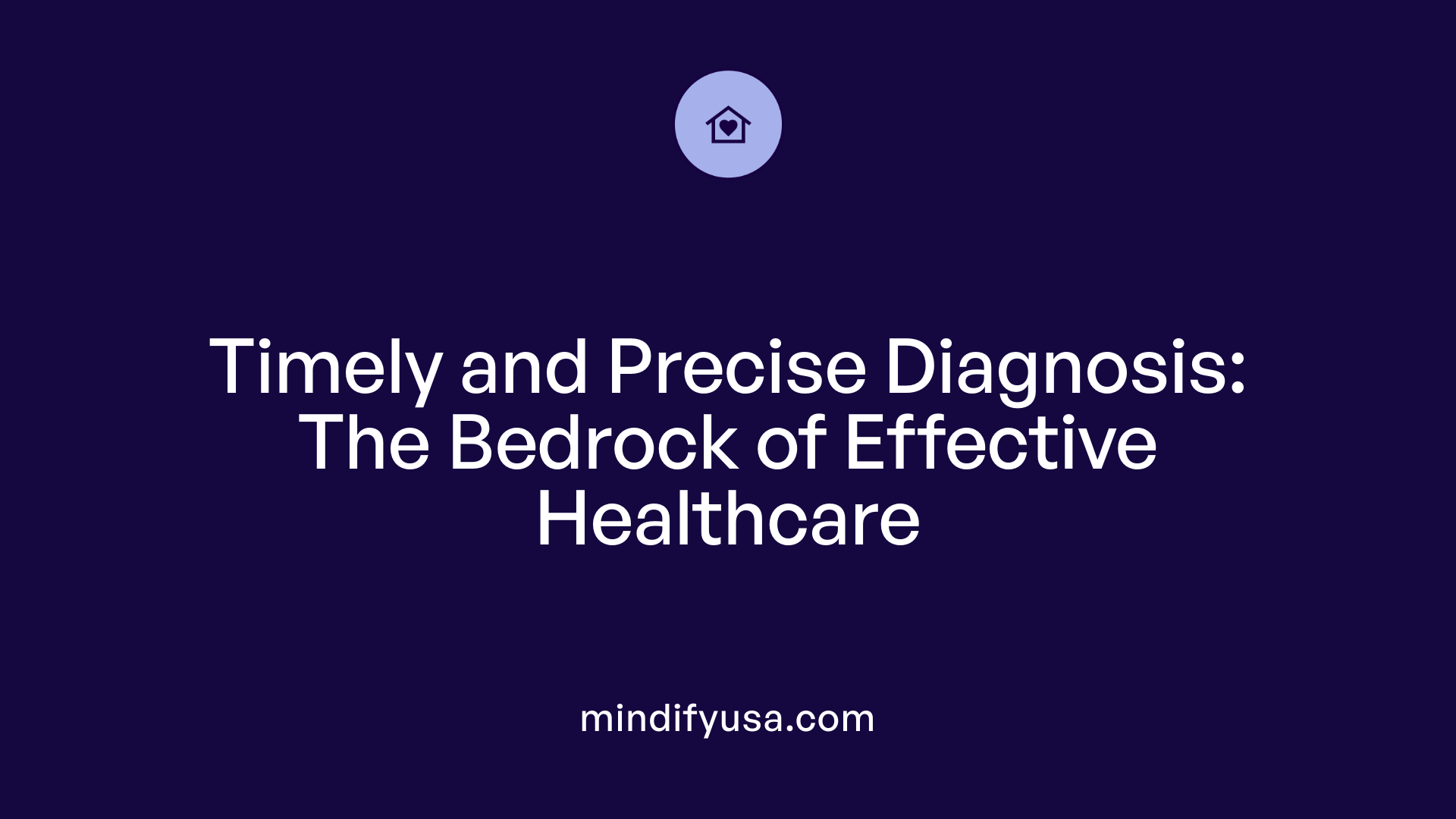
Why is accurate diagnosis crucial in healthcare?
Achieving an accurate diagnosis is fundamental for effective patient care. It shapes the entire treatment plan, ensuring that therapies are targeted, appropriate, and likely to succeed. When clinicians correctly identify a patient's health problem, they can make informed decisions that improve health outcomes and reduce unnecessary interventions.
Timely diagnosis is equally vital. It helps initiate treatment early, which is often associated with better recovery prospects and prevents complications or disabilities. For example, early detection of cancers like breast or cervical cancer significantly increases survival rates.
Getting the diagnosis right also impacts patient safety directly. Diagnostic errors—mistakes or delays in identifying health issues—are a major cause of preventable harm in healthcare systems worldwide. These errors can result from cognitive biases, system flaws, or technological misinterpretations, and they may lead to inappropriate treatments, worsening of the condition, or even mortality.
Furthermore, accurate diagnosis influences medical research, healthcare policy, and resource distribution. It supports the development of precise guidelines and decision-support tools, which aim to reduce errors and variability among clinicians. Advanced diagnostic technologies, such as AI and medical imaging, have enhanced ability but also require careful interpretation.
In summary, precise and prompt diagnosis serves as a cornerstone for high-quality healthcare. It ensures effective treatments, improves safety, and ultimately leads to better health outcomes—making it a moral and professional imperative for healthcare providers.
Diagnostic Precision and Patient Safety
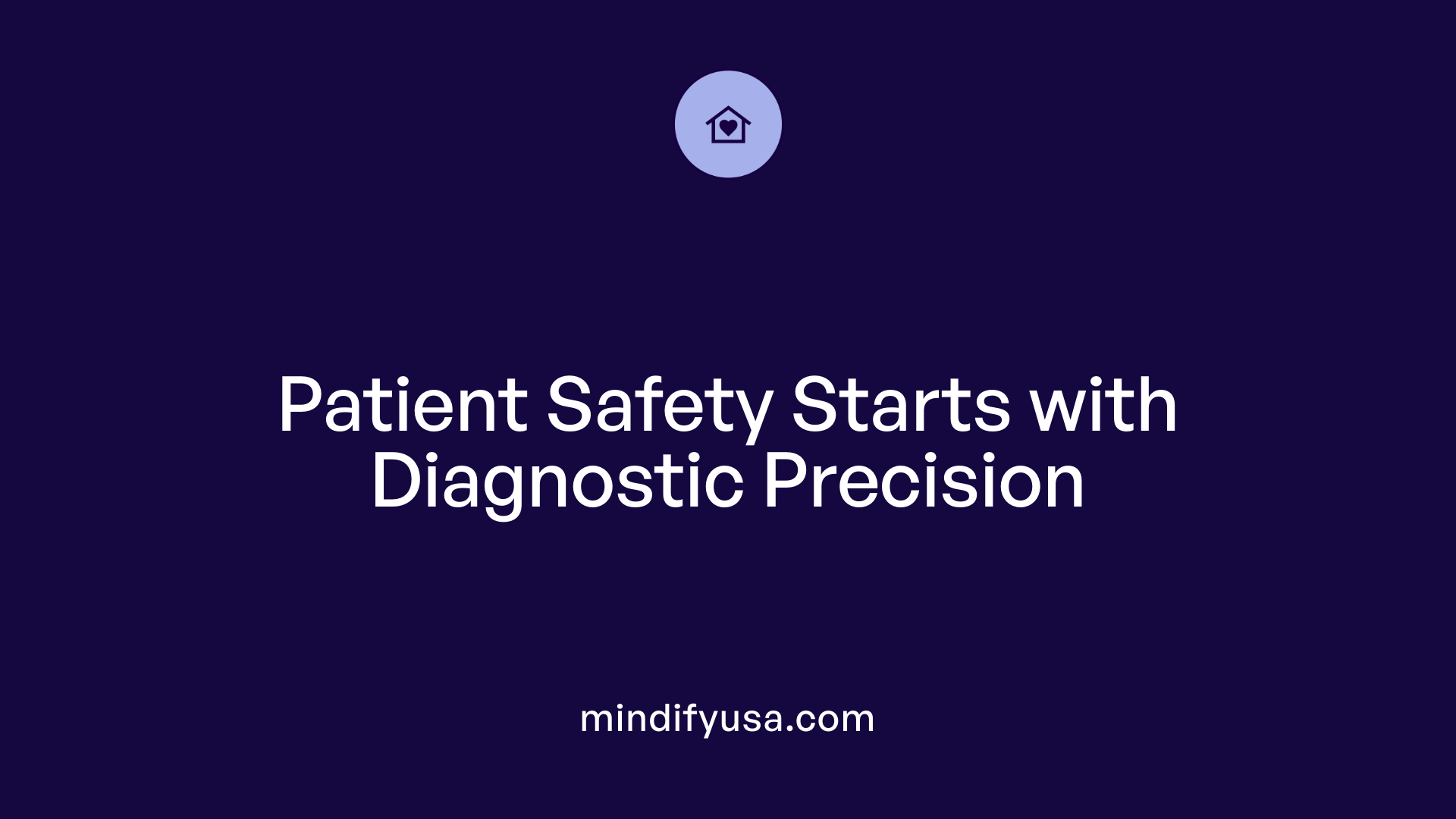
How does diagnostic precision impact patient safety and treatment success?
Accurate diagnosis is vital for safeguarding patient health because it directly influences the treatments prescribed. When clinicians achieve precise diagnoses, they can tailor interventions to the patient's specific condition, increasing the likelihood of successful outcomes. Conversely, diagnostic errors—such as misidentifying diseases or delays in diagnosis—can lead to inappropriate treatments, unnecessary procedures, and increased risk of harm.
Research shows that diagnostic mistakes are common and account for a significant portion of adverse healthcare events globally. For example, studies indicate that between 7% and 17% of hospitalized patients experience diagnostic errors, which can result in serious complications or even fatalities.
Improving the accuracy of diagnosis reduces the chances of mistreatment and enhances safety. It prevents the progression of diseases that would worsen without timely intervention. Also, precise diagnoses promote better resource utilization and reduce healthcare costs by avoiding unnecessary tests or treatments.
Technological tools like artificial intelligence (AI) and decision support systems are increasingly assisting clinicians in analyzing large datasets, recognizing patterns, and making more accurate decisions. Standardized protocols and collaborative team approaches further bolster diagnostic processes.
In essence, advancements in diagnostic precision not only improve individual patient outcomes but also strengthen overall healthcare quality by reducing preventable harm. Ensuring that diagnoses are as accurate as possible fosters trust between patients and healthcare providers, supports better recovery, and aligns with the overarching goal of delivering safe, effective, and efficient care.
Early and Accurate Diagnosis as a Public Health Imperative
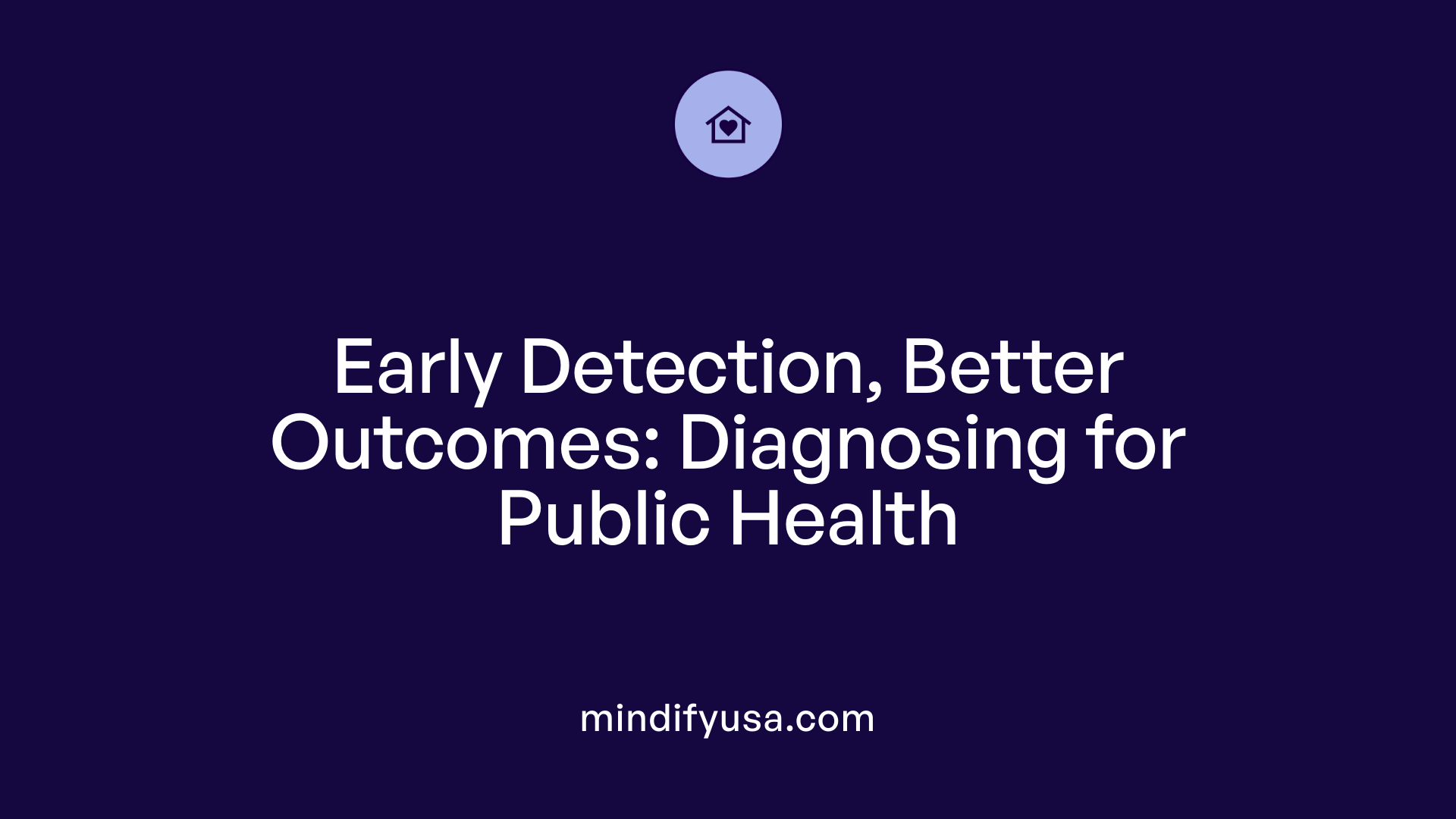
What role does early and accurate diagnosis play in public health?
Early and precise diagnosis is a cornerstone of effective public health strategy. It allows for the timely identification of diseases, which is crucial for initiating appropriate treatments before conditions worsen or become unmanageable. Detecting illnesses early, especially serious conditions like cancers, heart diseases, or neurodegenerative disorders, often results in less invasive, more successful interventions, significantly improving patients’ survival and quality of life.
Beyond individual patient benefits, early diagnosis enhances population health by enabling targeted screening programs and deployment of advanced medical technologies. Techniques such as medical imaging, laboratory testing, and emerging tools like artificial intelligence (AI) facilitate the detection of health risks in broader communities, allowing for proactive management and prevention.
Implementing widespread screening not only helps identify at-risk individuals but also helps prevent disease outbreaks and manage health threats more effectively. By catching diseases early, healthcare systems can mitigate the infection rates and reduce overall resource demands.
Furthermore, prioritizing early and accurate diagnosis contributes to the resilience of healthcare systems by decreasing long-term costs. Early detection reduces the need for complex, expensive treatments later in disease progression and minimizes the burden of chronic, unmanaged health conditions.
Informed diagnosis empowers individuals to make better health decisions, encouraging adherence to treatments and lifestyle changes that support recovery and health maintenance. This proactive approach ultimately leads to healthier populations, less strain on healthcare resources, and a more robust public health infrastructure.
Overall, focusing on early and accurate diagnosis is vital for improving treatment outcomes, preventing disease spread, conserving resources, and enhancing societal well-being.
Influence of Diagnostic Accuracy on Medical Education and Practice
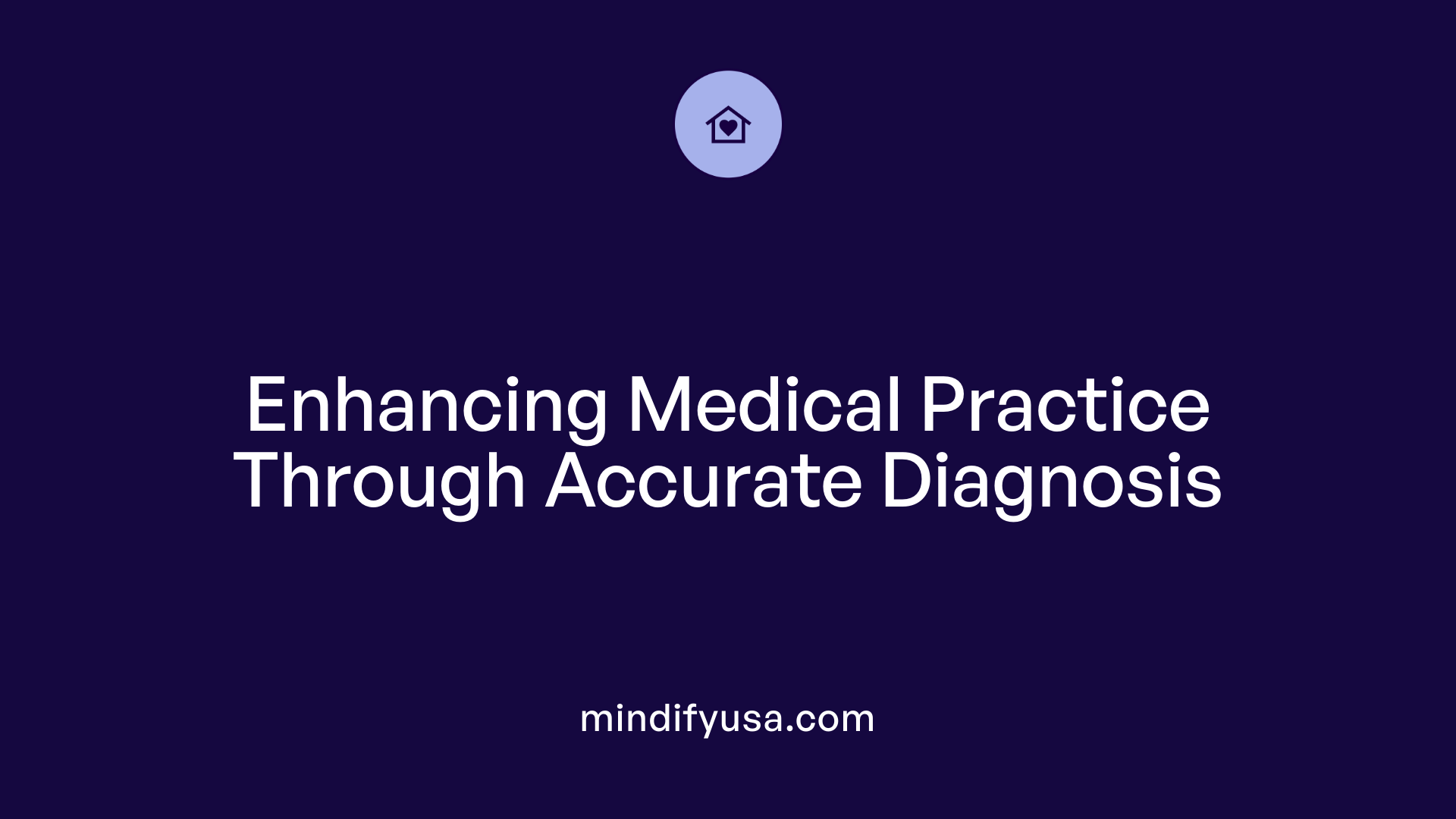
How does diagnostic accuracy influence medical education and practice?
Accurate diagnosis is fundamental to effective patient care and safety. It guides treatment decisions, helps prevent errors, and minimizes harm caused by misdiagnosis. Because of its importance, medical education places a strong emphasis on training clinicians in proper diagnostic techniques.
Educational programs focus on developing clinical reasoning skills—training clinicians to analyze patient information systematically, recognize patterns, and consider differential diagnoses. These programs also incorporate instruction in using decision support tools, including advanced diagnostics and artificial intelligence (AI), to enhance accuracy.
Incorporating new technologies such as AI-assisted diagnostics helps clinicians interpret large datasets, identify subtle disease patterns, and make more informed decisions. Standardized protocols further support consistent, accurate diagnoses across healthcare settings.
The impact of these educational and technological advancements extends beyond individual practice. Better diagnostic accuracy improves healthcare quality by reducing unnecessary testing, lowering costs, and enhancing patient trust.
In summary, improving diagnosis through targeted education, innovative tools, and team-based approaches drives progress in medical practice. It ensures safer, more effective treatments, fosters professional growth, and aligns healthcare delivery with the highest standards of excellence.
The Consequences of Diagnostic Errors and the Path to Excellence
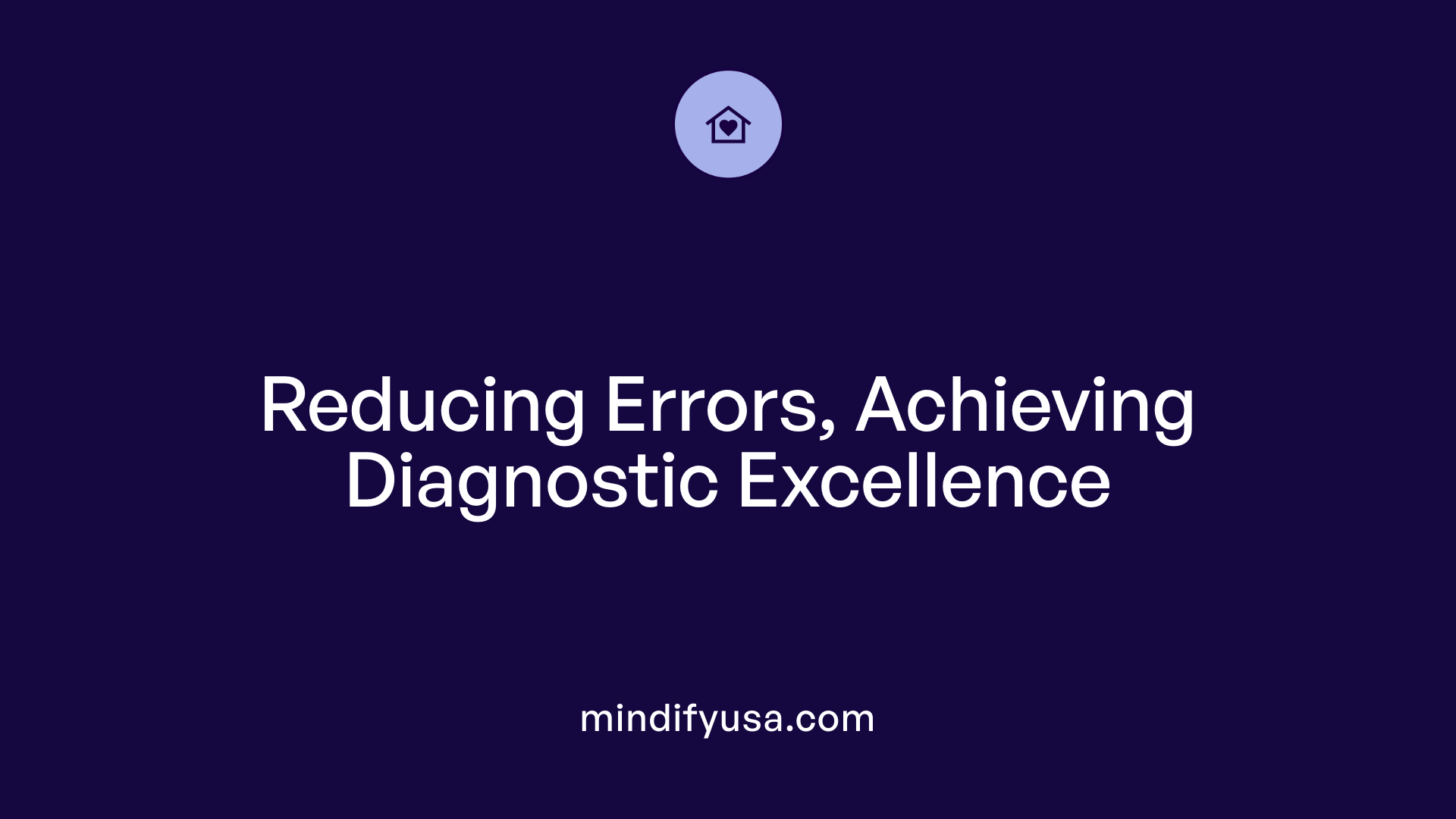
What are the consequences of diagnostic errors, and why is diagnostic excellence important?
Diagnostic errors can have serious repercussions for patient health and the broader healthcare system. When misdiagnoses or delayed diagnoses occur, patients might receive inappropriate treatments that could worsen their condition. These errors can lead to psychological distress, loss of trust in healthcare providers, and increased risk of complications or even death.
Beyond individual harm, diagnostic errors contribute significantly to healthcare costs due to unnecessary testing, treatments, and extended hospital stays. Studies estimate that diagnostic inaccuracies are involved in 7% to 17% of hospital adverse events and affect at least 1 in 20 adults annually in outpatient settings globally.
The importance of achieving diagnostic precision—referred to as diagnostic excellence—is underscored by efforts to reduce preventable harm. Ensuring accurate, timely diagnoses improves clinical outcomes, enhances patient safety, and boosts overall healthcare quality.
Healthcare organizations are adopting strategies such as clinical decision support tools, team-based approaches, and advanced technology—including artificial intelligence—and systematic error reporting to target diagnostic shortcomings. These methods help prevent errors, promote clearer communication, and foster continuous learning.
Furthermore, strengthening training in clinical reasoning and health system improvements can significantly lower diagnostic mistakes. Proper education on cognitive biases, such as premature closure, and improving diagnostic pathways are essential steps.
Overall, prioritizing diagnostic accuracy is a moral and professional obligation. It minimizes harm, supports better treatment choices, and fosters patient trust. Embracing innovation and fostering a culture of safety in diagnosis is critical to reduce errors and advance healthcare delivery.
Building a Future of Accurate Diagnostics
Achieving diagnostic excellence is a collective effort that involves continuous training, technological advancement, system-level improvements, and a patient-centered approach. As the complexity of modern medicine increases, the imperative for accurate diagnosis to ensure safe, effective, and equitable healthcare has never been greater. Investing in diagnostic accuracy not only saves lives but also builds stronger healthcare systems, fosters public trust, and upholds the moral and professional responsibilities of healthcare providers. Moving forward, embracing innovation and embracing a culture of accuracy will be vital to transforming healthcare into a safer, smarter, and more effective system for all.
References
- The Diagnostic Process - Improving Diagnosis in Health Care
- The Critical Role of Accuracy – A Systematic Review - PMC
- Understanding the Importance of Prompt and Accurate ...
- THE IMPORTANT ROLE OF DIAGNOSTIC ACCURACY IN ...
- The Pursuit of Diagnostic Excellence | Medical Education
- The Vital Importance of Accurate Diagnosis Before Starting ...
- Medical Diagnosis Before Treatment Is Vital | Learn Why
- Ensuring early and accurate diagnosis to improve access ...





































































































